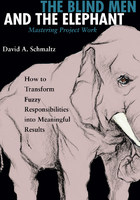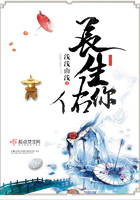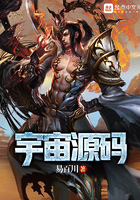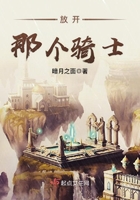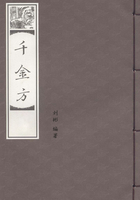My Marriage
My marriage was arranged. That's the way things were done then: where there were weddings, there were arrangements. I don't mean such things as bridal outfits, flowers, banquets, and music, though we had those too. Everyone has those, even now. The arrangements I mean were more devious than that.
Under the old rules only important people had marriages, because only important people had inheritances. All the rest was just copulation of various kinds-rapes or seductions, love affairs or one-night stands, with gods who said they were shepherds or shepherds who said they were gods. Occasionally a goddess might get mixed up in it too, dabble around in perishable flesh like a queen playing at milkmaids, but the reward for the man was a shortened life and often a violent death. Immortality and mortality didn't mix well: it was fire and mud, only the fire always won.
The gods were never averse to making a mess. In fact they enjoyed it. To watch some mortal with his or her eyes frying in their sockets through an overdose of god-sex made them shake with laughter. There was something childish about the gods, in a nasty way. I can say this now because I no longer have a body, I'm beyond that kind of suffering, and the gods aren't listening anyway. As far as I can tell they've gone to sleep. In your world, you don't get visitations from the gods the way people used to unless you're on drugs.
Where was I? Oh yes. Marriages. Marriages were for having children, and children were not toys and pets. Children were vehicles for passing things along. These things could be kingdoms, rich wedding gifts, stories, grudges, blood feuds. Through children, alliances were forged; through children, wrongs were avenged. To have a child was to set loose a force in the world.
If you had an enemy it was best to kill his sons, even if those sons were babies. Otherwise they would grow up and hunt you down. If you couldn't bring yourself to slaughter them, you could disguise them and send them far away, or sell them as slaves, but as long as they were alive they would be a danger to you.
If you had daughters instead of sons, you needed to get them bred as soon as possible so you could have grandsons. The more sword-wielders and spear-throwers you could count on from within your family the better, because all the other noteworthy men around were on the lookout for a pretext to raid some king or noble and carry away anything they could grab, people included. Weakness in one power-holder meant opportunity for another, so every king and noble needed all the help he could get.
Thus it went without saying that a marriage would be arranged for me when the time came.
At the court of King Icarius, my father, they still retained the ancient custom of having contests to see who should marry a nobly born woman who was-so to speak-on the block. The man who won the contest got the woman and the wedding, and was then expected to stay at the bride's father's palace and contribute his share of male offspring. He obtained wealth through the marriage-gold cups, silver bowls, horses, robes, weapons, all that trash they used to value so much back when I was alive. His family was expected to hand over a lot of this trash as well.
I can say trash because I know where most of it ended up. It mouldered away in the ground or it sank to the bottom of the sea, or it got broken or melted down. Some of it made its way to enormous palaces that have-strangely-no kings or queens in them. Endless processions of people in graceless clothing file through these palaces, staring at the gold cups and the silver bowls, which are not even used any more. Then they go to a sort of market inside the palace and buy pictures of these things, or miniature versions of them that are not real silver and gold. That is why I say trash.
Under the ancient customs, the huge pile of sparkling wedding loot stayed with the bride's family, in the bride's family's palace. Perhaps that is why my father had become so attached to me after having failed to drown me in the sea: where I was, there would be the treasure.
(Why did he throw me in? That question still haunts me. Although I'm not altogether satisfied with the shroud-weaving explanation, I've never been able to find the right answer, even down here. Every time I see my father in the distance, wading through the asphodel, and try to catch up with him, he hurries away as if he doesn't want to face me.
I've sometimes thought I may have been a sacrifice to the god of the sea, who was known to be thirsty for human life. Then the ducks rescued me, through no act of my father's. I suppose my father could argue that he'd fulfilled his side of the bargain, if bargain it was, and that he hadn't cheated, and that if the sea-god had failed to drag me down and devour me, that was his own tough luck.
The more I think about this version of events, the more I like it. It makes sense.)
Picture me, then, as a clever but not overly beautiful girl of marriageable age, let's say fifteen. Suppose I'm looking out the window of my room-which was on the second floor of the palace-down into the courtyard where the contestants are gathering: all those young hopefuls who wish to compete for my hand.
I don't look directly out of the window, of course. I don't plant my elbows on the windowsill like some hulking maid and stare shamelessly. No, I peek, from behind my veil and from behind the drapery. It would not do to let all those scantily clad young men see my unveiled face. The palace women have dolled me up as best they can, minstrels have composed songs of praise in my honour-'radiant as Aphrodite', and all the usual claptrap-but I feel shy and miserable. The young men laugh and joke; they seem at ease with one another; they do not glance up.
I know it isn't me they're after, not Penelope the Duck. It's only what comes with me-the royal connection, the pile of glittering junk. No man will ever kill himself for love of me.
And no man ever did. Not that I would have wanted to inspire those kinds of suicides. I was not a man-eater, I was not a Siren, I was not like cousin Helen who loved to make conquests just to show she could. As soon as the man was grovelling, and it never took long, she'd stroll away without a backwards glance, giving that careless laugh of hers, as if she'd just been watching the palace midget standing ridiculously on his head.
I was a kind girl-kinder than Helen, or so I thought. I knew I would have to have something to offer instead of beauty. I was clever, everyone said so-in fact they said it so much that I found it discouraging-but cleverness is a quality a man likes to have in his wife as long as she is some distance away from him. Up close, he'll take kindness any day of the week, if there's nothing more alluring to be had.
The most obvious husband for me would have been a younger son of a king with large estates-one of King Nestor's boys, perhaps. That would have been a good connection for King Icarius. Through my veil, I studied the young men milling around down below, trying to figure out who each one was and-a thing of no practical consequence, since it wasn't up to me to choose my husband-which one I preferred.
A couple of the maids were with me-they never left me unattended, I was a risk until I was safely married, because who knew what upstart fortune hunter might try to seduce me or seize me and run away with me? The maids were my sources of information. They were ever-flowing fountains of trivial gossip: they could come and go freely in the palace, they could study the men from all angles, they could listen in on their conversations, they could laugh and joke with them as much as they pleased: no one cared who might worm his way in between their legs.
'Who's the barrel-chested one?' I asked.
'Oh, that's only Odysseus,' said one of the maids. He was not considered-by the maids at least-to be a serious candidate for my hand. His father's palace was on Ithaca, a goat-strewn rock; his clothes were rustic; he had the manners of a small-town big shot, and had already expressed several complicated ideas the others considered peculiar. He was clever though, they said. In fact he was too clever for his own good. The other young men made jokes about him-'Don't gamble with Odysseus, the friend of Hermes,' they said. 'You'll never win.' This was like saying he was a cheat and a thief. His grandfather Autolycus was well known for these very qualities, and was reputed never to have won anything fairly in his life.
'I wonder how fast he can run,' I said. In some kingdoms the contest for brides was a wrestling match, in others a chariot race, but with us it was just running.
'Not very fast, on those short legs of his,' said one maid unkindly. And indeed the legs of Odysseus were quite short in relation to his body. It was all right when he was sitting down, you didn't notice, but standing up he looked top-heavy.
'Not fast enough to catch you,' said another of the maids. 'You wouldn't want to wake up in the morning and find yourself in bed with your husband and a herd of Apollo's cows.' This was a joke about Hermes, whose first act of thievery on the day he was born involved an audacious cattle raid. 'Not unless one of them was a bull,' said another. 'Or else a goat,' said a third. 'A big strong ram! I bet our young duck would like that! She'd be bleating soon enough!' 'I wouldn't mind one of that kind myself,' said a fourth. 'Better a ram than the babyfingers you get around here.' They all began laughing, holding their hands over their mouths and snorting with mirth.
I was mortified. I didn't understand the coarser kinds of jokes, not yet, so I didn't know exactly why they were laughing, though I understood that their laughter was at my expense. But I had no way of making them stop.
* * *
At this moment my cousin Helen came sailing up, like the long-necked swan she fancied herself to be. She had a distinctive swaying walk and she was exaggerating it. Although mine was the marriage in question, she wanted all the attention for herself. She was as beautiful as usual, indeed more so: she was intolerably beautiful. She was dressed to perfection: Menelaus, her husband, always made sure of that, and he was rich as stink so he could afford it. She tilted her face towards me, looking at me whimsically as if she were flirting. I suspect she used to flirt with her dog, with her mirror, with her comb, with her bedpost. She needed to keep in practice.
'I think Odysseus would make a very suitable husband for our little duckie,' she said. 'She likes the quiet life, and she'll certainly have that if he takes her to Ithaca, as he's boasting of doing. She can help him look after his goats. She and Odysseus are two of a kind. They both have such short legs.' She said this lightly, but her lightest sayings were often her cruellest. Why is it that really beautiful people think everyone else in the world exists merely for their amusement?
The maids sniggered. I was crushed. I had not thought my legs were quite that short, and I certainly hadn't thought Helen would notice them. But not much escaped her when it came to assessing the physical graces and defects of others. That was what got her into trouble with Paris, later-he was so much better looking than Menelaus, who was lumpish and red-haired. The best that was claimed of Menelaus, once they started putting him into the poems, was that he had a very loud voice.
The maids all looked at me to see what I would say. But Helen had a way of leaving people speechless, and I was no exception.
'Never mind, little cousin,' she said to me, patting me on the arm. 'They say he's very clever. And you're very clever too, they tell me. So you'll be able to understand what he says. I certainly never could! It was lucky for both of us that he didn't win me!'
She gave the patronizing smirk of someone who's had first chance at a less than delicious piece of sausage but has fastidiously rejected it. Indeed, Odysseus had been among the suitors for her hand, and like every other man on earth he'd desperately wanted to win her. Now he was competing for what was at best only second prize.
Helen strolled away, having delivered her sting. The maids began discussing her splendid necklace, her scintillating earrings, her perfect nose, her elegant hairstyle, her luminous eyes, the tastefully woven border of her shining robe. It was as if I wasn't there. And it was my wedding day.
All of this was a strain on the nerves. I started to cry, as I would do so often in the future, and was taken to lie down on my bed.
Thus I missed the race itself. Odysseus won it. He cheated, as I later learned. My father's brother, Uncle Tyndareus, father of Helen-though, as I've told you, some said that Zeus was her real father-helped him to do it. He mixed the wine of the other contestants with a drug that slowed them down, though not so much as they would notice; to Odysseus he gave a potion that had the opposite effect. I understand that this sort of thing has become a tradition, and is still practised in the world of the living when it comes to athletic contests.
Why did Uncle Tyndareus help my future husband in this way? They were neither friends nor allies. What did Tyndareus stand to gain? My uncle would not have helped anyone-believe me-simply out of the goodness of his heart, a commodity that was in short supply.
One story has it that I was the payment for a service Odysseus had rendered to Tyndareus. When they were all competing for Helen and things were getting more and more angry, Odysseus made each contestant swear an oath that whoever won Helen must be defended by all of the others if any other man tried to take her away from the winner. In that way he calmed things down and allowed the match with Menelaus to proceed smoothly. He must have known he had no hope himself. It was then-so the rumour goes-that he struck the bargain with Tyndareus: in return for assuring a peaceful and very profitable wedding for the radiant Helen, Odysseus would get plain-Jane Penelope.
But I have another idea, and here it is. Tyndareus and my father, Icarius, were both kings of Sparta. They were supposed to rule alternately, one for a year and the other the next, turn and turn about. But Tyndareus wanted the throne for himself alone, and indeed he later got it. It would stand to reason that he'd sounded out the various suitors on their prospects and their plans, and had learned that Odysseus shared the newfangled idea that the wife should go to the husband's family rather than the other way around. It would suit Tyndareus fine if I could be sent far away, me and any sons I might bear. That way there would be fewer to come to the aid of Icarius in the event of an open conflict.
Whatever was behind it, Odysseus cheated and won the race. I saw Helen smiling maliciously as she watched the marriage rites. She thought I was being pawned off on an uncouth dolt who would haul me off to a dreary backwater, and she was not displeased. She'd probably known well beforehand that the fix was in.
As for me, I had trouble making it through the ceremony-the sacrifices of animals, the offerings to the gods, the lustral sprinklings, the libations, the prayers, the interminable songs. I felt quite dizzy. I kept my eyes downcast, so all I could see of Odysseus was the lower part of his body. Short legs, I kept thinking, even at the most solemn moments. This was not an appropriate thought-it was trivial and silly, and it made me want to giggle-but in my own defence I must point out that I was only fifteen.

